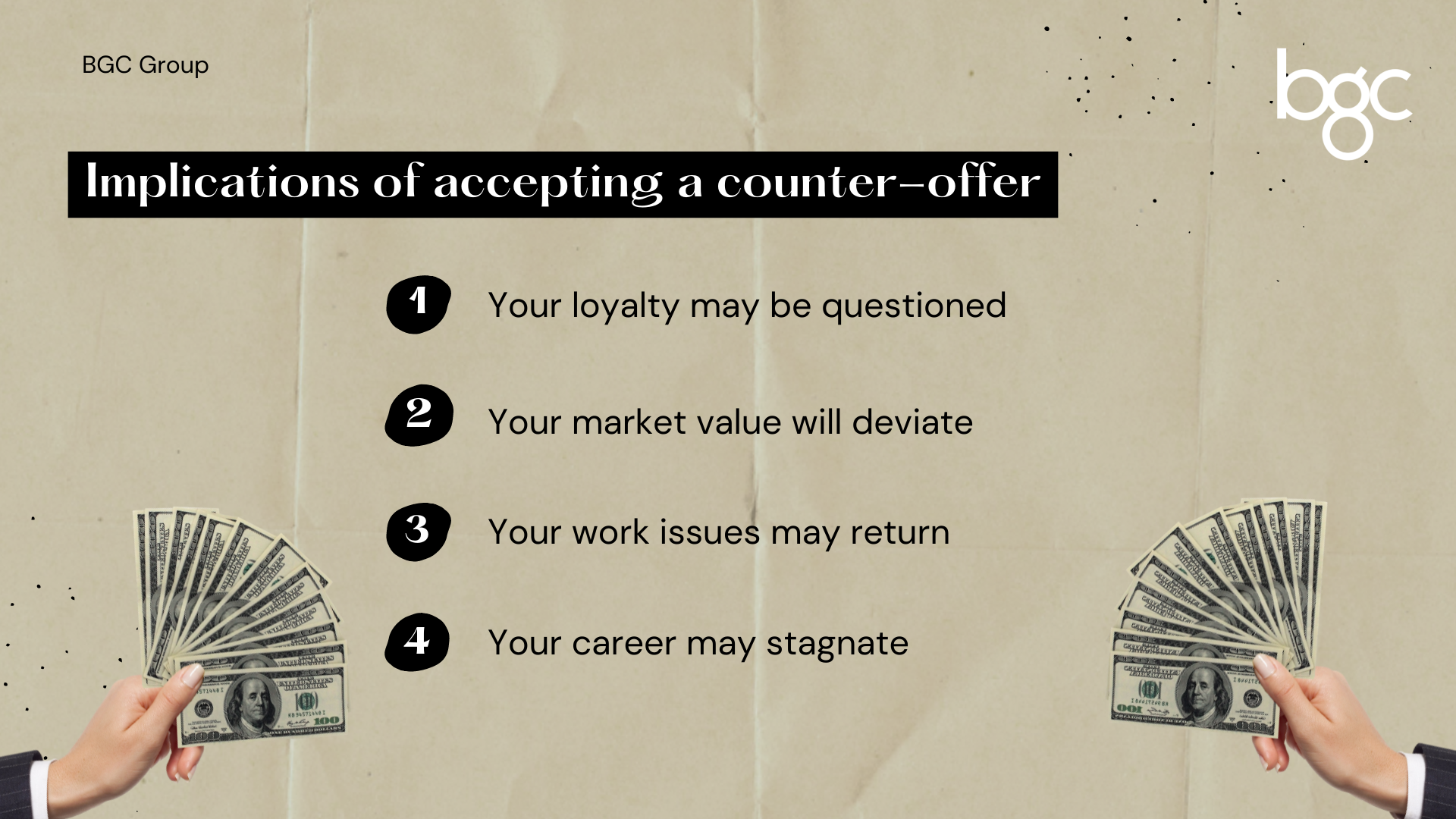Ever considered a possible scenario where your employer asks you to reconsider your resignation with a counter-offer? Here’s how to handle the situation.
You’ve thought long and hard about your decision. In fact, you’ve already secured your next job and are looking forward to starting in the new company. Today, you’re going to submit your resignation and move on to the next phase of your career journey. Everything will go as planned.
Wait. What if your employer asks you to reconsider your resignation with an enticing offer on the table? How will you handle the situation?
Take some time to decide
First, ask for some time to decide. Should you ever find yourself at a three-way crossroads between accepting an offer, declining or submitting a counter-offer, the best thing to do is to ask your current employer to give you some time to decide.
You would not want a decision made on the spur of the moment to have long-term implications for your career. Whether you have made up your mind to leave, or are attracted to the counter-offer presented, asking for time to decide shows professionalism on your part. Request your boss for a day or two to get back. Now that you’ve got some time to decide, how will you do it?
While there may not be a standard answer as to whether you should accept, reject or renegotiate the offer, one important consideration is why you chose to resign in the first place.
Does the counter-offer resolve your work issues?
While it may be flattering to receive a counter-offer, remember the reasons that drove you to look for greener pastures. Perhaps you’ve been stuck in the same role for a number of years due to the lack of opportunities for advancement in the company.
Or maybe due to other reasons such as a bad boss, toxic work culture, or you’re unable to cope with the overwhelming stress of your job — all of which you’ve tried resolving but to no avail.
Hence, it is important to assess if the counter-offer addresses the underlying issues that or merely offer a short-term solution. While a counter-offer would usually see you receiving a bump in your salary and even a promotion, it is rarely the answer to resolving prevailing work issues unless salary was the main reason that drove you to look for another job.
Implications of accepting a counter-offer

If you decide to take up the counter-offer, be aware of certain implications that may not be obvious to you immediately. Here are some things worth noting.
1. Your loyalty may be questioned
If you can be persuaded to stay with a salary increase and promotion, you may be perceived as having no loyalty to the company — even if the counter-offer was initiated by your employers in the first place! The management may also see you as a flight risk to be excluded from the company’s plans.
2. Your market value will deviate
If you accept a counter-offer with a significant increase in salary, there is a chance that you’re being overpaid for the job compared to the market rate. This could affect any future professional move as your remuneration won’t match your value in the jobs market.
3. Your work issues may return
Now that you’ve chosen to remain in the company by accepting the counter-offer, there is a possibility that the same work problems that you faced before, will come back to haunt you. Only this time, it’d be harder to resolve them as you may be expected to cope with them after being given a salary hike and promotion.
4. Your career may stagnate
Once you’ve been promoted by way of the counter-offer, it may take a very long time for your next promotion to happen, perhaps even never. If you’re worth the increased salary and responsibilities, then why did it take your resignation for the promotion to happen?
Should you always decline a counter-offer?
Realistically, there are no hard and fast rules if you should accept, decline or renegotiate a counter-offer. If you have worked in the current company for some time, you probably can foresee how your career will progress should you choose to stay.
If your career is in a rut, perhaps it’s worth exploring new possibilities and won’t be left wondering what may have happened had you rejected the counteroffer and moved on to a new job.
A counter-offer can be tempting, but if you already have a well-thought-out career plan in place before making the decision to resign, perhaps it’s best to think through things again. According to recruitment firm Robert Walters, professionals who accept counter-offers often restart their job search in two to six months time.
If you need help with planning your career journey or looking to upskill to increase your employability, it would be good to speak to a career coach for some professional advice. Best of luck!
This article was contributed by Workforce Singapore’s Workipedia by MyCareersFuture.
